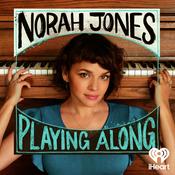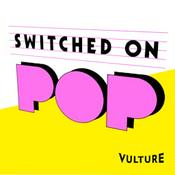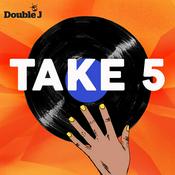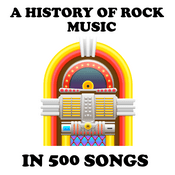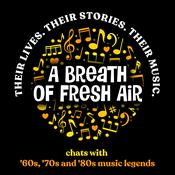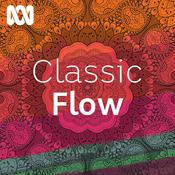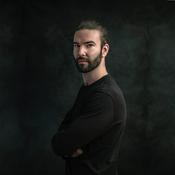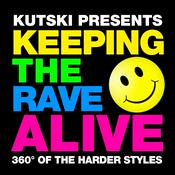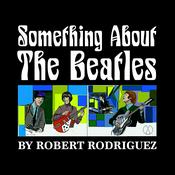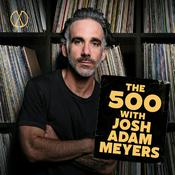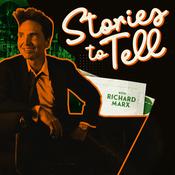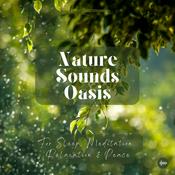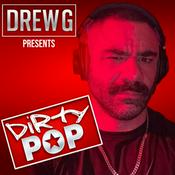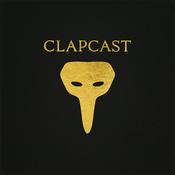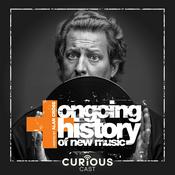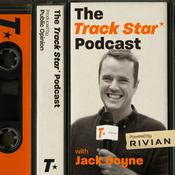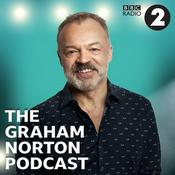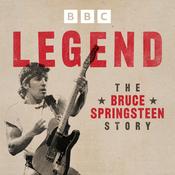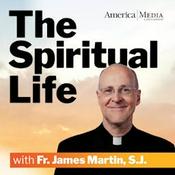Hark! The stories behind our favorite Christmas carols
24 episodes

O Little Town of Bethlehem
21/12/2025 | 57 mins.
“O Little Town of Bethlehem” has shaped how millions of English speakers imagine the Palestinian town where Jesus was born: a small place, still and peaceful, resting under the stars. The wars and struggles of recent decades invite us to question whether that image is true. And yet, “Bethlehem is still a very little town,” says Stephanie Saldaña, a writer and mother raising her family in this religiously and culturally diverse place. “It is a small place where everybody knows each other.” Still more striking is how closely the need that gave rise to the carol echoes the present moment. In 1865, after the Civil War devastated the United States, Philadelphia rector Phillips Brooks was broken by grief—Lincoln’s assassination and the loss of his younger brother to cholera while serving in the Union Army. Seeking solace, Brooks traveled to Bethlehem. What he found there—peace, stillness, God present in a small community—he later put into words and set to music as a carol for children who had lost fathers to war. [Is there a carol you'd love to hear on “Hark!”? Let us know in our listener survey.] Now, more than 150 years later, that same carol reaches those in the Holy Land today, reeling from pandemic and war—and far beyond—to offer us what it has always offered: stillness, God's presence, enduring hope. In this fifth season finale, host Maggi Van Dorn speaks with: Stephanie Saldaña, a writer, wife, and mother in Bethlehem, reflects on life in the place where Jesus was born—and on discovering the carol’s deepest truths amid war, COVID-19, and economic collapse. Rachel Wenner Gardner, rector of the Church of the Holy Trinity in Philadelphia where Phillips Brooks served, on his pilgrimage to the Holy Land and why he wrote this carol for children in the aftermath of Civil War. John French, former organist at Holy Trinity for 28 years, on the brilliance of Lewis Redner’s original tune and Ralph Vaughan Williams’s folk arrangement. Karen Swallow Prior, poet and retired English professor, on the theological depth hidden in Brooks’s poem. The music featured in this episode was generously gifted to “Hark!” Our thanks to Frank Tuson, Richard Gilewitz, Salt of the Sound, Smalltown Poets, St. Paul’s Boys Choir School, Cambridge, Mass., The Choir of King’s College, Cambridge, U.K., The Roches, and Tony Alonso, courtesy of GIA Publications, Inc. Our theme music was produced by Frank Tuson. Want short, inspiring Bible reflections every day during Advent and Christmas? This year, our Scripture Reflections are free for Hark! listeners—sign up at AmericaMagazine.org/hark. Love a good holiday brain-teaser? Our weekly Christmas carol trivia is exclusively for America subscribers. Take the fourth and final quiz of the season here! Or visit, AmericaMagazine.org/hark. Learn more about your ad choices. Visit megaphone.fm/adchoices

The First Noel
14/12/2025 | 55 mins.
Did you know that when a ewe rejects her newborn lamb, the shepherd has only hours to convince her to nurse it—or the lamb will die? This is the work of shepherds—staying awake through the night when lambs are being born, watching closely, ready to step in and save them. It gives new meaning to the good shepherd. In this episode, host Maggi Van Dorn travels to a farm in Herefordshire, near the Welsh border, to understand shepherding, and discovers why God might have chosen shepherds to be the first to hear the good news. But shepherding is not all Maggi learned about for this episode. She has a firsthand learning experience too. After 30 years, she once again took up the fiddle, working with her teacher to discover why “The First Noel”—with its simple, stepwise melody—is the perfect carol for those just starting out or returning to music. She speaks with: Luke Timothy Johnson, a leading scholar of Luke’s Gospel and former Benedictine monk, on why God announces the incarnation first to shepherds—the poor and overlooked—who notice what others miss. Colin Britt, conductor and director of choral activities at Mount Holyoke College, on the word “Noel” (or “Nowell” in its original Cornish spelling) and why this carol’s repetitive structure helped it survive and spread through folk tradition. Austen Ivereigh, a papal biographer and writer who, with his wife Linda, tends sheep on a regenerative farm in Herefordshire, on what it takes to care for a flock and keep vigil through the night awaiting birth. The music featured in this episode was generously gifted to “Hark!” Our thanks to Colin Britt, Matt Isaac, The Grant High School Royal Blues directed by John Eisemann, Quincas Moreira, Salt of the Sound, The Maine All-Student Theater Project, Tony Alonso and GIA Publications, and Maggi’s fiddle teacher Nic Coker. Our theme music was produced by Frank Tuson. Want short, inspiring Bible reflections every day during Advent and Christmas? This year, our Scripture Reflections are free for Hark! listeners—sign up at AmericaMagazine.org/hark. Love a good holiday brain-teaser? Our weekly Christmas carol trivia is exclusively for America subscribers. Take the quiz here! Or visit, AmericaMagazine.org/hark. Learn more about your ad choices. Visit megaphone.fm/adchoices

Angels We Have Heard on High
07/12/2025 | 56 mins.
We often imagine angels as gentle and serene. But in Scripture they arrive in blinding light and overwhelming sound—so much so that their first words are almost always “Do not be afraid.” These are the messengers who burst into the night sky to meet a group of poor, worn-out shepherds—outsiders who become the first to hear the news of Christ’s birth. “Angels We Have Heard on High” draws us into that holy night. Encounters with the divine rarely stay within the bounds of one language, and this carol embodies that truth. Born in French, welcomed into English, yet always held by one steady constant: the Latin refrain “Gloria in excelsis Deo.” According to French legend, shepherds sang that proclamation from field to field on Christmas Eve, their voices reaching person to person, place to place, echoing the angels announcing Christ’s birth to all. Maggi speaks with: Candida Moss, the Edward Cadbury Professor of Theology at the University of Birmingham, who explains why angels in Scripture inspire awe and fear, how the idea of guardian angels emerged later in Christian history and why God chose marginalized shepherds as the first recipients of the good news. Christopher Walker, an internationally renowned Los Angeles-based composer, conductor, choir director and liturgist, returns to his hometown in Bristol, England, where he directed music at Clifton Cathedral for years. From a friend’s recording studio, he deconstructs the carol’s musical architecture, showing how a single word in the Latin refrain unfurls across sixteen soaring notes to evoke the motion, echo and lift of angels in flight. Our thanks in this episode go to Armonico Consort; Vox Turturis and Andrew Gant of Signum Records; the Choir of King's College, Cambridge; Ricardo da Silva, S.J.; Derek Fiechter; the Gothard Sisters; Richard Gilewitz; Malukah; The Grant High School Royal Blues and John Eisemann; The Roches; Christopher Walker and OCP; Simon Wester; John Weston; and Anna, Fae, Frank and Genevieve Tuson. Our theme music was produced by Frank Tuson. Want short, inspiring Bible reflections every day during Advent and Christmas? This year, our Scripture Reflections are free for Hark! listeners—sign up at AmericaMagazine.org/hark. Love a good holiday brain-teaser? Our weekly Christmas carol trivia is exclusively for America subscribers. Take the second quiz here! Or visit, AmericaMagazine.org/hark. Learn more about your ad choices. Visit megaphone.fm/adchoices

The Coventry Carol
30/11/2025 | 1h 4 mins.
Most Christmas carols celebrate the birth of Jesus. But not “The Coventry Carol,” the premiere episode of “Hark!” season five. This song centers on a biblical horror: the “massacre of the innocents,” King Herod’s order to kill all male babies two years old and under in Bethlehem. It’s a lullaby sung by mothers to children who may not survive the night. In this episode, host Maggi Van Dorn travels to Coventry, England, to trace how this centuries-old lament survived the Reformation, a devastating library fire and the 1940 bombing of Coventry Cathedral during the Second World War— and how it has served the city’s witness to grief and reconciliation. She speaks with: Rev. Richard Cooke, an Anglican priest in the Diocese of Coventry, who unpacks the carol’s scriptural and early historical roots. Malvern Carvell, a local historian with deep family ties to Coventry, who walks her through the cathedral ruins and the city’s medieval past. Rev. Kate Massey, the cathedral’s minister for arts and reconciliation, who reflects on the carol’s spiritual power and Coventry's enduring commitment to reconciliation Rachel Mahon, the cathedral’s director of music—and the first woman to serve as organist at St. Paul’s Cathedral in London—who walks Maggi through the carol’s uneven rhythms and haunting modal lines In a BBC broadcast from Coventry Cathedral’s ruins after Germany’s bombing Blitz, against England, Provost Richard Howard urged the nation to “build a kinder, more Christ-childlike world,” even with years of war still ahead. Hope had to begin in the rubble—a reminder that this lullaby carries us through Advent into Christmas not by turning from the world’s pain, but by singing through it together. Want short, inspiring Bible reflections every day during Advent and Christmas? This year, our Scripture Reflections are free for Hark! listeners—sign up at AmericaMagazine.org/hark. Love a good holiday brain-teaser? Our weekly Christmas carol trivia is exclusively for America subscribers. Take the first quiz here! Or visit, https://www.americamagazine.org/hark The music featured in this episode was generously gifted to “Hark!” Our thanks to James Bilodeau, The King’s Singers and Signum Records, Brad Prevedoros, Matthew Pierce, Avaendil, Brian Thiessen, Cynthia Boener, Salt of the Sound, the Coventry Cathedral Girls’ Choir and the Choir of King’s College, Cambridge. Our theme music was produced by Frank Tuson. Learn more about your ad choices. Visit megaphone.fm/adchoices

What Child Is This?
15/12/2024 | 47 mins.
On the final episode of Hark! this season, prepare yourselves for a wee bit of scandal because we’re looking at a tune that began as a bawdy love song and has long been associated with an evil monarch, but which, over the course of three centuries, finds its redemption as a Christmas carol. This is the story behind, “What Child Is This?” Please complete our brief survey to share your hopes for Hark! and to let us know which carols you’d love us to feature next year. “What Child Is This” may have been derived from a Christmas poem by William Chatteron Dix in the mid 19th century, but its musical roots stretch as far back as the 16th century, when its famous tune, “Greensleeves,” was circulated in Europe’s royal courts. In an attempt to track the tune’s composer, and separate fact from fiction, Maggi Van Dorn brings on Milton Mermikides, the 37th Gresham Professor of Music at Gresham College, London. Maggi is then joined by Richard Jeffrey-Gray, head of the music service for the Diocese of Clifton, Bristol, United Kingdom, who traces how the romantic ballad “Greensleeves” became the Christmas carol “What Child Is This,” along with what makes this, according to Richard, “one of the most, perfect tunes to to play and to sing.” Susan Reynolds, a theologian at the Candler School of Theology at Emory University and mom of three girls, unpacks the rhetorical structure of the song’s lyrics and its profound theological implications for our world today. The music featured on this episode was generously gifted to Hark! by Clifton Cathedral Choir, Bristol, U.K.; Nicholas Steinbach and Grey Duck Music; Holland Albright; Cynthia Boener; Michael Logozar and Brian Thiessen. With special thanks to Signum Records for providing renditions of the carol "What Child Is This" by the following artists signed to their label: King’s Singers, Armonico Consort, Matthew Barley and The London Cello Sound, featuring the 40 cellos of the London Philharmonic, Royal Philharmonic, BBC Symphony, and Philharmonia Orchestras. Support Hark! by becoming a digital subscriber to America Magazine at: americamagazine.org/subscribe This season of Hark! is sponsored by Saints for Sinners, offering divine saint medals imported from Italy and meticulously hand-painted in New Orleans. Learn more about your ad choices. Visit megaphone.fm/adchoices
More Music podcasts
Trending Music podcasts
About Hark! The stories behind our favorite Christmas carols
Listen to Hark! The stories behind our favorite Christmas carols, Song Exploder and many other podcasts from around the world with the radio.net app
Get the free radio.net app
- Stations and podcasts to bookmark
- Stream via Wi-Fi or Bluetooth
- Supports Carplay & Android Auto
- Many other app features
Get the free radio.net app
- Stations and podcasts to bookmark
- Stream via Wi-Fi or Bluetooth
- Supports Carplay & Android Auto
- Many other app features

Hark! The stories behind our favorite Christmas carols
download the app,
start listening.



